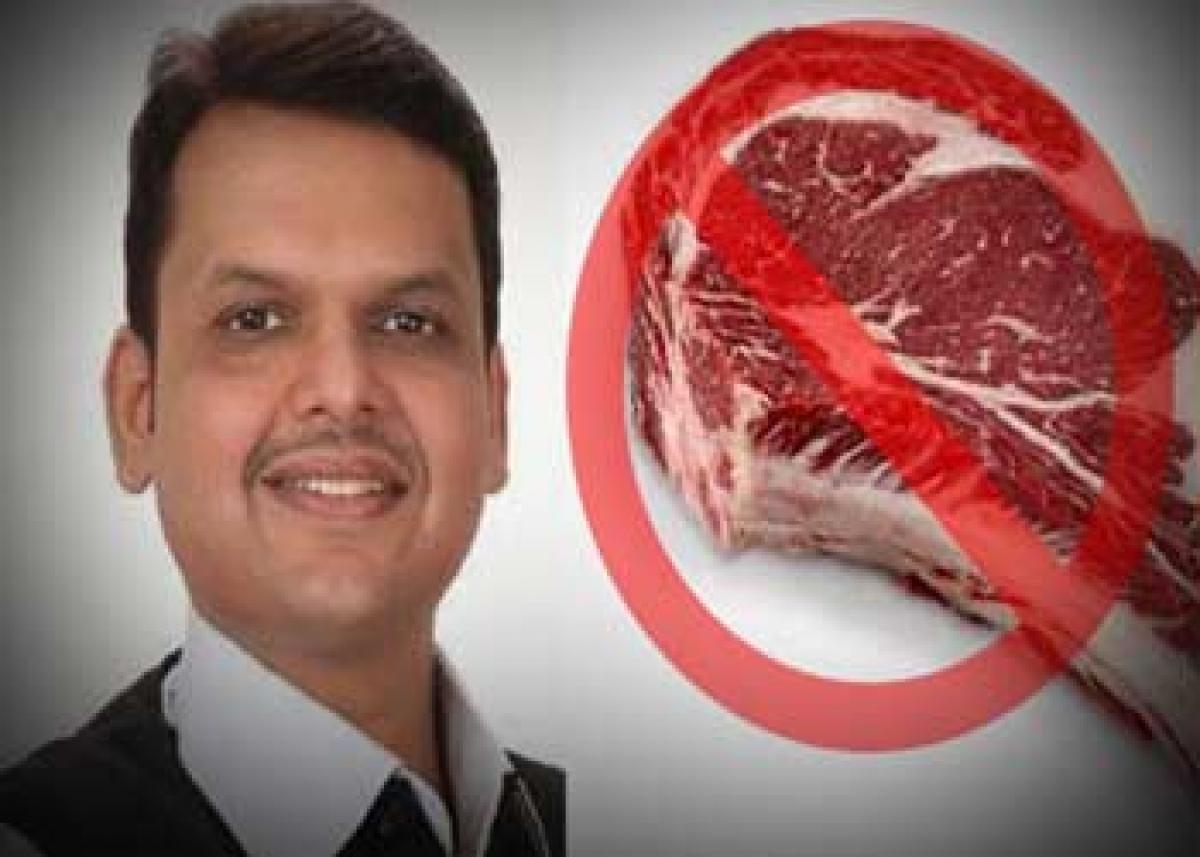Live
- ‘Get Set, Grow Summit 2024’ Focuses on Digital Detox for Families
- Stokes motivates his team to put in extra effort, says England pacer Potts
- From overcoming setbacks to leading India in U19 Women’s Asia Cup, Niki Prasad's amazing journey
- Driving Enterprise Security: Inside Venkata Reddy Thummala’s Leadership Journey
- Constitution debate: PM Modi hails 'Nari Shakti'; makes strong pitch for 'United Bharat’
- Abhijeet Bhardwaj: Revolutionizing Enterprise Analytics with Innovation and Expertise
- Bihar: Inquiry initiated against principal who went to buy veggies during school hours
- Press Sri Lankan Prez for release of Indian fishermen: TN Cong MP to EAM Jaishankar
- TN: DMK postpones executive meet due to heavy rains & Parliament session
- Porous silicon oxide electrodes can fix durability issues in batteries: Researchers
Just In

How a court verdict allows meat ban during Jain fete. Mira-Bhayander municipal corporation on the suburbs of Mumbai has imposed a closure of slaughter houses and meat shops during the eight-day Jain festival of Paryushan this month.
 Mira-Bhayander municipal corporation on the suburbs of Mumbai has imposed a closure of slaughter houses and meat shops during the eight-day Jain festival of Paryushan this month. Jains are estimated to comprise around 1.2 lakh of the 8.5 lakh residents of Mira-Bhayandar, where the municipal corporation is currently run by the Bharatiya Janata Party-Shiv Sena combine.
Mira-Bhayander municipal corporation on the suburbs of Mumbai has imposed a closure of slaughter houses and meat shops during the eight-day Jain festival of Paryushan this month. Jains are estimated to comprise around 1.2 lakh of the 8.5 lakh residents of Mira-Bhayandar, where the municipal corporation is currently run by the Bharatiya Janata Party-Shiv Sena combine.
On Monday, Mumbai city also followed suit, as the Municipal Corporation of Greater Mumbai issued an order to ban the sale of meat for four of the eight Paryushan days: September 10, 13, 17 and 18.
Not surprisingly, the civic authorities' decision to honour Jain sentiments at the cost of other citizens' freedom to eat what they want, to say nothing of eight days of business for slaughter houses and meat shops, has evoked a sharp reaction from meat-eating residents in Mira-Bhayander and Mumbai: Muslims, Christians, Kolis and other Maharashtrians.
“What politics do the city authorities want to play?” asked Wellington Rodrigues, president of the Cross Garden Chapel in Bhayandar. “Is it even legal to ask other people to stop eating something only because it hurts their sentiments?” Rodrigues’s anguished question, however, happens to have a definite answer.
A 2008 Supreme Court judgement by Justices Makrandey Katju and HK Sema actually grants municipal corporations the power to impose a ban on meat slaughter during Paryushan. The story of the Supreme Court judgement began more than a decade ago in Gujarat, where the Ahmedabad Municipal Corporation accepted requests by Jain organisations and ordered all municipal slaughter houses to remain closed during Paryushan, a sacred time when Jains not only fast but emphasise the principle of ahimsa (non-violence).
A coalition of butchers challenged the Ahmedabad Municipal Corporation’s order in the Gujarat High Court, on the grounds that it violated their right earn a livelihood. When the court ruled in favour of the butchers, Jain trust Himsa Virodhak Sangh challenged the verdict in the Supreme Court, where the matter was heard by Justices Makrandey Katju and HK Sema.
The apex court reversed the high court judgement and upheld a municipal corporation’s right to shut down slaughter houses during Paryushan. The judgement by Katju and Sema is grounded in the idea that eight or nine days in a whole year is not a long time for slaughter houses to shut shop for the sake of tolerance within India's diverse society.
The judgement says: “If the Emperor Akbar could forbid meat eating for six months in a year in Gujarat, is it unreasonable to abstain from meat for nine days in a year in Ahmedabad today? It was because of the wise policy of toleration of the Great Emperor Akbar that the Mughal empire lasted for so long, and hence the same wise policy of toleration alone can keep our country together despite so much diversity.”
For Jain trusts, this Supreme Court verdict has been a strategic tool even in other states beyond Gujarat. “All this is happening because we have a new government, and it’s not ours,” said Rashid Qureshi, a butcher at beef shop in Mira Road. “Till last year, we had to shut shop only for two days of Paryushan, but eight days is too much. We are not going to obey this order.
How will we earn if we do?” Most meat vendors and consumers in the city agree, however, that the Jains have succeeded in gaining greater power in Mira-Bhayander despite being a minority. “Housing in this city is heavily segregated on the lines of vegetarians and non-vegetarians, so even though Jains have a small population, they are concentrated in larger numbers in some wards,” said Rodrigues. “This has helped them win civic elections and wield power.”
By Aarefa Johari

© 2024 Hyderabad Media House Limited/The Hans India. All rights reserved. Powered by hocalwire.com







